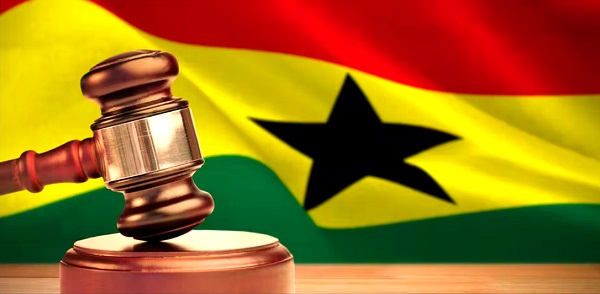
Perils of plea bargain
Of the many bills it passed, keen followers of Ghanaian criminal jurisprudence would remember the second sitting of the second session of the Eighth Parliament of the Fourth Republic of Ghana for passing the Criminal and Other Offences (Procedure) (Amendment) Bill, 2021 to “provide for plea bargaining in the administration of criminal justice” in Ghana.
This Plea Bargain Bill subsequently received the President’s imprimatur on July 22, 2022 in accordance with Article 106 of the Constitution, making it an Act of Parliament and a law of our country; it bears the official name: The Criminal and Other Offences (Procedure) (Amended) Act, 2022 (Act 1079).
Ghana’s plea bargain legislation prior to Act 1079 has remained unchanged since Act 30, called the Criminal Procedure Code when it was first enacted, became operational on January 12, 1961, more than half a century ago.
Parliament felt the need to amend our plea bargain law “to meet the needs of [an] emerging [Ghanaian] society”, as well as bring our criminal justice system “in tandem with international best practices”. In the USA for example, over 97 per cent of federal crimes are convicted according to plea bargain agreements.
In thoroughness to the history of our plea bargain jurisprudence, Act 30 had allowed for limited plea bargain in indictable offences.
And the Courts Act, 1993 (Act 459) allows for limited plea bargain where criminal offences result in fiscal loss to the State.
And fairly recently, the Office of the Special Prosecutor Act, 2017 (Act 959) and the Narcotics Control Commission Act, 2020 (Act 1019) allow for plea bargain in offences related to corruption and narcotics respectively.
Act 1079, however, expanded the ambit of plea bargain to include more offences and to encourage its use.
New law
Act 1079 defines a plea bargain as “a process in the criminal justice system where accused persons relinquish their right to go through full trial in exchange for some other benefit/s”.
The act enumerates these benefits as including “reduction of the offence to be charged to a lesser offence, reduction in the punishment for an offence charged or a withdrawal of some of the charges against the accused person”.
Criminal accused persons may now lawfully truncate an otherwise full and elongated and costly trial by tabling a plea bargain before the prosecutor or accepting one from the prosecutor.
And prosecutors may now avoid the time, resources and personnel needed for a full trial by offering accused persons a plea bargain or accepting one from them, freeing and enabling the Attorney-General’s outfit to be more effective and efficacious.
Apart from benefits to accused persons and prosecutors, our criminal justice system stands to gain from its new plea bargain law in many ways: lighter court dockets, brief criminal trials, non-custodial sentences that reduce the number of persons in our crowded prisons and restoring criminal victims by compensating them.
Act 1079 does not allow for plea bargain in all criminal offences. Treason, high treason, genocide, rape, defilement, genocide, robbery and kidnapping are exempted, as are attempted murder, abduction, piracy and hijacking, as well as an offence related to public elections.
Perils
Widespread use of plea bargain may encourage slumpy criminal investigation. Hoping that an accused person would accept a plea bargain, the prosecutor and the investigator may short-circuit the investigation, resulting in no or poor preparation for trial.
Likewise, defence counsel may be ill-prepared, if at all, if an accused person is seen likely to take a plea bargain.
Lack of investigation and lack of attention to the fine details of a crime because of a pending plea bargain, either as a prosecutor or a defence counsel, portends perils for our criminal justice system, least of which is the blunting of our criminal justice machinery.
Some accused persons are innocent. The fear of being convicted to suffer severe punishment such as prolonged imprisonment may compel an otherwise innocent person to sign a plea bargain when the court could have acquitted him upon a fair and full trial.
Indigene criminal accused person with no means of hiring a lawyer at a lefty fee, and who is facing the possibility of severe punishment upon conviction such as a long-term imprisonment, may easily succumb to a plea bargain for a lesser offence and a lesser sentence though innocent of the crime he is charged with.
And a plea bargain may generously gift a criminally guilty person a lesser charge and a softer sentence disproportionate to the crime committed.
Still, under Act 1079, judges are opportune to flash some light in the dark tunnel of the perils of plea bargains by declining to accept an agreed plea bargain between the prosecutor and the accused person if endorsing it might circumvent the ends of justice. Hopefully, judges will be ready with this flashlight in hand when a plea bargain agreement is put before the court.
The writer is a lawyer/doctoral fellow at Fordham Law School, N.Y., USA. E-mail:
